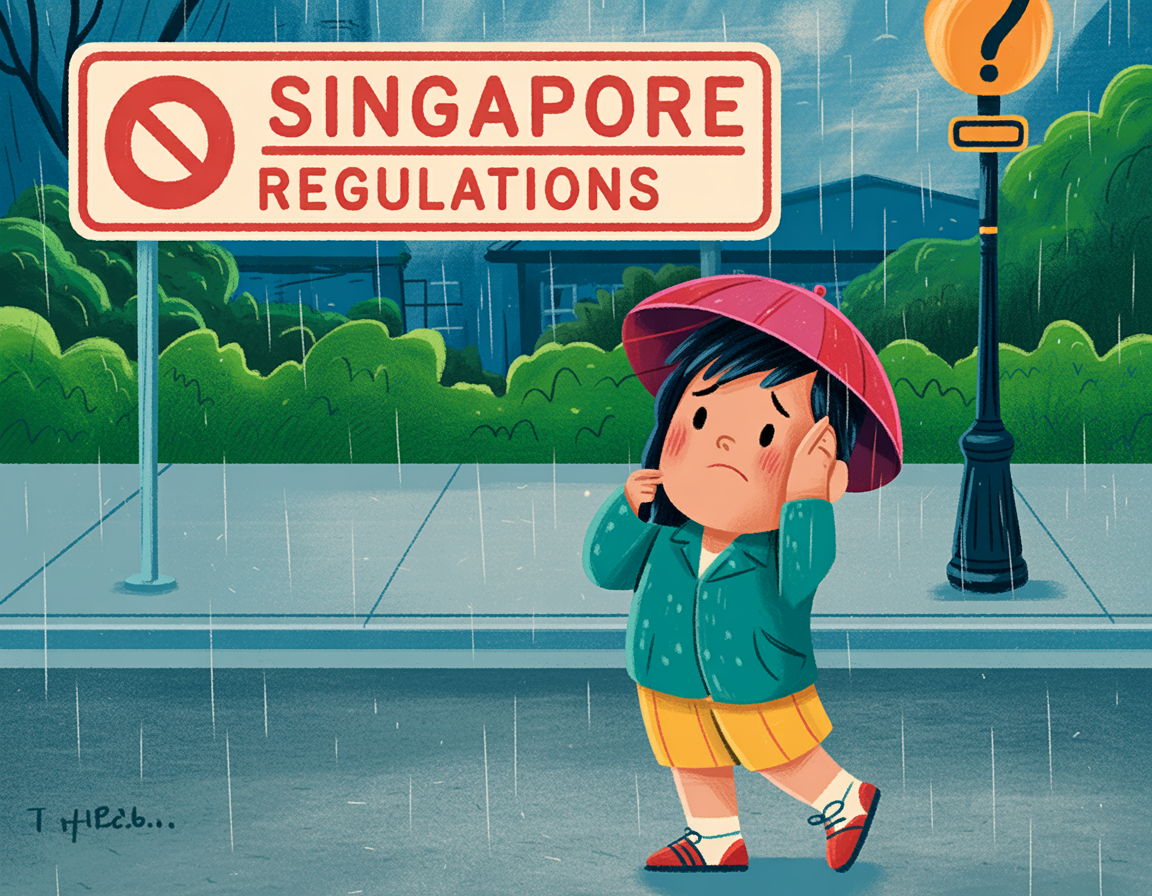Strict Laws Every Visitor Should Know in Singapore
Singapore is renowned for its strict enforcement of laws designed to preserve the city’s cleanliness, order, and safety. Tourists visiting this vibrant island city-state must familiarize themselves with specific rules, as violations can result in heavy fines or even imprisonment.
Among the most notable regulations is the prohibition of chewing gum except for medical exceptions such as nicotine or dental gum. This ban aims to keep public spaces clean and gum-free, especially on transport seating, elevators, and keyholes. Improper possession or disposal can draw fines of up to SGD 1,000.
Littering is treated with zero tolerance. Even small acts like throwing a cigarette butt or a receipt can incur fines starting at SGD 300. Larger offenses might lead to court appearances and corrective work orders.
Additional Important Restrictions
- Public Nudity: Appearing naked in public, including hotel rooms visible from outside, is an offense with penalties up to SGD 2,000 or three months imprisonment.
- Smoking: This is banned in many public areas such as transport stops, playgrounds, and hospitals. Fines for smoking violations can range from SGD 200 to 1,000. Moreover, the possession or sale of e-cigarettes and vapes is illegal and can lead to imprisonment.
- Jaywalking: Crossing roads outside designated pedestrian crossings is fined SGD 1,000 and can even lead to jail time.
- Drugs: Possession, trafficking, or use of illegal substances carry some of the most severe penalties, including large fines, imprisonment, and in extreme cases, capital punishment.
- Public Transport Etiquette: Eating or drinking inside MRT trains and stations is forbidden and carries a fine of SGD 500.
- Vandalism: Defacing public or private property can result in fines up to SGD 2,000, jail, and caning.
- Public Toilets: Even not flushing a public toilet is punishable as some elevators have urination detectors linked to alarms notifying the police.
Historical Context of Singapore’s Stringent Laws
Singapore’s strict legal framework is rooted in its transformation from a once modest trading port into a highly developed city-state. Since independence in 1965, Singapore’s leadership has emphasized cleanliness, social order, and safety to propel its rapid modernization and global appeal. This approach has helped maintain one of the world’s lowest crime rates and cleanest urban environments, making the city appealing to both residents and visitors.
The famous gum ban dates back to the 1990s when gum litter was damaging public facilities and increasing clean-up costs. Similarly, severe penalties on littering and vandalism have long been part of Singapore’s toolkit to ensure urban hygiene and aesthetic appeal. These regulations support Singapore’s image as one of the cleanest and safest cities in Asia and globally ranked as very safe for tourists.
Singapore’s Enforcement and Urban Cleanliness
| Offense | Penalty | 참고 |
|---|---|---|
| Chewing Gum Import/Disposal | Up to SGD 1,000 fine | Exemptions for nicotine/dental gum |
| Littering (small items) | Starting at SGD 300 fines | Includes cigarette butts and receipts |
| Public Nudity | Up to SGD 2,000 fine or 3 months jail | Includes hotel rooms visible publicly |
| Smoking in Prohibited Areas | SGD 200 to 1,000 fine | Ban includes e-cigarettes and vapes |
| Jaywalking | Up to SGD 1,000 fine and possible jail | Crossing outside designated lanes |
| Eating/Drinking in MRT | SGD 500 fine | Strict MRT rules on consumption |
| Vandalism | Up to SGD 2,000 fine, jail, and caning | Applies to public and private property |
| Failing to Flush Public Toilets | Police notification, possible fine | Detection devices installed |
Future Impact on Tourism and International Visitors
Singapore’s uncompromising approach to maintaining public order and cleanliness has turned it into a model destination for safety-conscious travelers. While some tourists may find the strict laws daunting, these regulations ensure a unique environment where the cityscape remains orderly and welcoming.
The city-state continues to attract millions of visitors annually, many from Asia and beyond, interested not only in its urban sophistication and cultural diversity but also in its spotless streets and efficient public services. This reputation fuels further growth in tourism and business travel, with increasing numbers stopping over or extending stays to enjoy world-class attractions and events.
Potential Challenges and Opportunities
- Tourists must increasingly adapt to local laws to avoid penalties.
- Authorities may leverage these rules to differentiate Singapore as a premium, safe destination.
- Continued vigilance and public education will be key to sustaining the city’s high standards amid rising visitor numbers.
Summary and Conclusion
Visitors to Singapore face a landscape of rigorous regulations that are essential to preserving the city’s renowned cleanliness and safety. From the gum ban and littering fines to strict rules against jaywalking and public nudity, compliance is crucial for a trouble-free visit.
Historically, these laws have played a significant role in transforming Singapore into an orderly and attractive global destination. Looking forward, these measures not only safeguard the city’s appeal but also contribute to a distinctive visitor experience.
For tourists planning trips to this bustling marine gateway, awareness and respect for local rules are indispensable.
As Singapore stands as a key player in the region—a hub where urban modernity meets cultural richness—the yachting and boating community also benefits from its maintained order and pristine waterfronts. For those eager to explore Singapore’s beautiful harbors, islands, and beaches by sea, GetBoat.com offers an international marketplace to charter yachts, rent sailing boats, and enjoy the sparkling waters surrounded by well-managed marinas and clear coastal views.

 Key Tourist Regulations in Singapore That Prevent Fines and Penalties">
Key Tourist Regulations in Singapore That Prevent Fines and Penalties">
